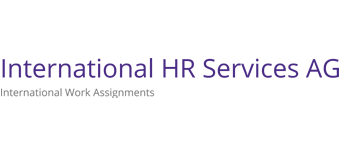Required proof of language skills before granting or extending a permit in Switzerland
IMPORTANT FOR ALL FOREIGN EMPLOYEES IN SWITZERLAND
Requirements since January 1st, 2019
Since January 1st, 2019, Switzerland has a new law where permits to stay in Switzerland, incl. prolongations, are only granted when the knowledge of local language skills is proven. With local language is meant the common language of the place where the person stays; French in Lausanne, German in Zug, Italian in Lugano etc.
It is very much recommended to Companies employing foreigners to inform them about this new law and decide on an early stage (in a policy) who pays the language course for the employee and his / her family, as well as whose responsibility it will be when the employee and the family don’t meet the requirements for a Swiss permit prolongation.
Granting or extending the residence Permit (B) of third country nationals
| Who | Requirements |
| Family reunion with a third country national holding a B, C or F permit | Knowledge of the local language: oral A1
or Registration in a language course that leads to a level. |
| After ceasing a marriage (after at least three years of marriage and fulfillment of the integration criteria) | Knowledge of the local language: oral A1 |
| Caretakers and teachers from third countries | Knowledge of the local language: oral B1, written A1 |
Granting the residence permit for settlement (C)
| Who | Requirements |
| Grant of the residence permit after 5 or 10 Years.
Nationals of the following countries are exempt: Belgium, Netherlands, Italy, France, Austria, Germany, Denmark, Spain, Portugal, Greece, Liechtenstein |
Knowledge of the local language: oral A2, written A1
|
| Regranting the permit after a downgrade or stay abroad. | Knowledge of the local language: oral A2, written A1 |
| Early Grant of the permit after 5 Years. | Knowledge of the local language: oral B1, written A1 |
Proof of evidence
Local language skills are considered to be proven if the applicant;
- speaks a national language of the place of residence as a mother tongue
- attended at least for three years the compulsory School in Switzerland in a national language
- has completed a training in a national language at an upper secondary level (E.g. Apprenticeship, High school or Technical School) or tertiary level (E.g. university or university of applied sciences)
If the applicants do not meet any of the above three requirements, they must present a recognized language certificate that certifies the required language skills.
Recognized language certificates include:
Summary
This new law had its rollout in the 26 Swiss cantons four months ago. Its application can vary as well as the grade of its strictness. Nevertheless, Switzerland requires an integration into the Swiss culture and language from foreigners living and working here.
Please don’t hesitate to contact International HR Services Ltd. for further questions to this subject.

